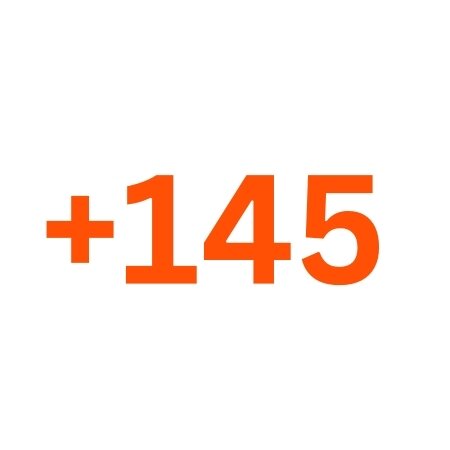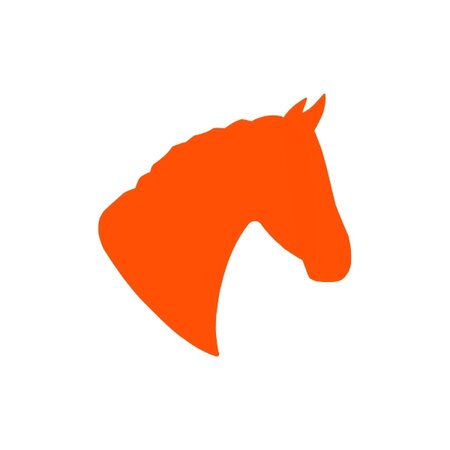How to Bet on Horses Online: Best Horse Racing Betting Guide
Betting on horse racing might seem complex at first, but this guide to betting on horse racing will show you how easy it is to make race wagers with confidence.
From simple bets like Win, Place, and Show to more advanced options like Exacta and Trifecta bets, our horse racing betting guide covers everything beginners need to know. You’ll learn how to read odds, place bets online, follow expert tips, and make smarter picks for every race.
It doesn’t matter whether you’re betting on the Kentucky Derby or your local track; these tips are applicable for every race. Saddle up and jump into the action!
A Beginner’s Guide to Horse Racing Betting
Getting started with horse racing betting is easier than you might think. Whether you’re in it for the excitement or aiming to profit, learning the basics is the first step toward placing smarter bets. In this guide, we’ll show you exactly how to make your first wager on the ponies, and what to do next to keep improving.
1. Learn the Language
Understanding odds, betting terms, and how to evaluate horses, jockeys, and trainers sets you up for smarter decisions right from the start. Mastering the basics builds your confidence and lays the groundwork for long-term success.
2. Learn the Angles: How to Make Smarter Bets in Horse Racing
Understanding odds, betting terms, and how to evaluate horses, jockeys, and trainers sets you up for smarter decisions right from the start. Mastering the basics builds your confidence and lays the groundwork for long-term success.
To effectively bet on horses, beginners can gain an edge by learning some key betting angles that relate to form and performance:
- Trainer and Jockey Form – Top trainers and jockeys consistently ride the best horses. Track their performance across different race types and distances.
- Horse Odds – Around 85% of race winners come from the top four favorites. Favorites tend to reflect actual race strength, especially in smaller fields.
- Gate Position – On many North American tracks, inside post positions offer better tactical advantages, especially on turns.
- Speed Figures – These numbers show how fast a horse has run in similar conditions. They are key indicators of overall ability.
- Pedigree – For young or debuting horses, a strong bloodline often indicates distance preferences and performance potential.
3. Listen to the Pros
Before you place a bet, it helps to learn from experts. Our guide shares insights from experienced bettors who explain race stats, trends, and how to read the race card. Their advice can help you find good bets and avoid common mistakes—so you feel more confident right from the start.
4. How to bet on Horse Racing Online?
We recommend that new bettors begin with simple wagers like Win, Place, and Show. These are easy to understand and have favorable odds while you get used to them. Once you are more comfortable with the sport, try more complex bet types like Exacta, Trifecta, or Superfecta. With these, you have to select several finishers in sequence and can reward you with higher payouts.
Begin with choosing a reputable online betting website, create an account, fund it, and familiarize yourself with different forms of bets. Betting on horses is easy and enjoyable once you know how! Here’s what to do:
1. Choose a Trusted Horse Racing Platform – Find a reliable betting site that offers horse racing markets, competitive odds, and easy-to-use features.
2. Sign Up for an Account – Register by entering your basic details—such as name, email, address, date of birth, and a valid ID to confirm your age and identity.
3. Deposit Funds Securely – Add money to your account using a safe and convenient payment method like a debit card, e-wallet, or bank transfer.
4. Browse Races and Pick a Horse – Look through the upcoming race schedule, compare the odds, and choose the horse you believe has the best chance to win or place.
5. Select Your Bet Type – Start with simple options like Win, Place, or Show bets. When you’re ready, try more advanced bets like Exacta or Trifecta for higher payouts.
6. Add Your Bet to the Slip and Confirm – Click on your selection, enter your wager amount, and confirm the bet. Your slip will track your bets in real time.
Placing Your First Bet: What to Expect
Once your account is set up and funded, placing a bet is quick and easy. Most online horse racing platforms are designed to guide you through each step, even if it’s your first time.
Here’s what you’ll typically find:
- Full Race Schedule – View all upcoming races in one place—organized by time, track, and location.
- Horse Listings with Live Odds – See every horse in the race along with real-time odds, so you can compare favorites, underdogs, and value picks.
- Easy Bet Selection Tools – Click to select your horse, choose your bet type (Win, Place, Show, etc.), enter your wager amount, and confirm.
These tools make the process smooth—even for beginners. And remember, you can always start with smaller bets while you learn. With just a few clicks, you’re in the game—and your pick could turn into your first win.

EXPERT RECOMMENDATION:
Start with small Place or Show bets when learning how to bet on horse racing. These bets are easier to understand, and help you gain experience before trying more advanced options. Learning the basics first builds confidence and makes betting more fun.
What Are the Different Types of Horse Racing Bets?
The main types of horse racing bets are Win, Place, Show, Exacta, Trifecta, and Superfecta—each with different payout structures and levels of risk. Here’s a quick overview:
Win
The win bet is a classic wager where you choose a single horse to be the victor in the race.

Example: You bet $10 on Timberlake to win the Kentucky Derby at odds of +800. Timberlake wins, so you get $80 profit, plus your $10 stake back.
Place
In the US, a place bet allows you to back a horse to finish in first or second place. This broadens your chances of winning compared to a win bet, which requires picking the exact victor.

Example: Track Phantom has odds of +1000 in the Preakness Stakes. You make a $10 place bet, and he finishes second, which earns you a smaller payout than if he’d won. Still, it’s enough to earn you profit!
Show
A show bet lets you choose a horse to finish anywhere in the top three positions. This widens your chances of winning compared to win and place bets.

Example: You back Common Defense at +700 to show in the Belmont Stakes. Your $100 bet wins as Common Defense finishes third, and you receive a cut of the total wagered.
Exotic Bet
A horse racing exotic bet allows you to make predictions about multiple horses and their finishing positions. Beyond the standard win, place, and show bets, advanced bets are similar to parlays in sports betting. Combine selections from different races, or focus on a single race with multiple horse picks.

Example: You bet on three horses to win their respective races at Churchill Downs. You create a three-bet at mega odds, since all three horses need to win for you to win your bet. All three horses win and you take home huge profits.
Exacta
Exacta bets require you to predict the first two horses to cross the finish line, and in exactly the right order. They are ideal bets for those who want to increase their potential profits.

Example: You’re confident Timberlake will win the Kentucky Derby and think Stronghold is a good wager to finish second. You make an exacta on both horses (Timberlake to win, Stronghold to place) at much higher odds than two individual bets.
Trifecta
Trifecta bets require bettors to select which horses they think will finish first, second, and third in the exact order. They are notoriously difficult to master but come with enormous odds.

Example: You wager on the Kentucky Oaks and spot three horses you know will impress at Churchill Downs. You decide to maximize your profit potential by selecting which of the three will win, place, and show. All three need to finish in the exact order for you to win your wager.
Superfecta
A superfecta is like a trifecta, but it requires predicting the first four finishers of the race in the correct sequence. Superfectas carry very, very big odds. Even with smaller wagers, you can win a lot of money.

Example: You bet on four horses in the Preakness Stakes. You create your superfecta and wager just $0.20. Your stake is small, but your potential profits are huge because the odds of nailing a superfecta bet are enormous.
Quinella
Beginners who don’t want to make their bets too complicated often thrive when placing quinella bets. Here, you choose just two horses you think will finish first or second, in any order.

Example: You can’t decide which of two horses will win the Melbourne Cup, so you choose to place a quinella on both selections. This means you can cheer on both horses and not worry which one beats the other.
Pari-Mutuel Betting
Pari-mutuel betting is when all wagers placed on a particular race are put together into a single pool of money. Dividends are calculated based on the number of people who bet on the successful horse, and the size of each individual bet. Pari-mutuels are popular across the U.S.

Example: You back Tuscan Sky in the Kentucky Derby and place a $10 wager on the pari-mutuel market, rather than the racebook odds. 99 other bettors also back Tuscan Sky and the overall pot for the race hits $50,000. Tuscan Sky wins, so you receive 10x the Total Outlay ($50,000) / Sum of Winning Wagers (100) = $5,000 (minus a small house take).
Master the Track: Horse Betting Advanced Tactics
Once you know how to place a bet, the next step is learning how identify wagers with the most value — bets which balance risk vs reward perfectly. Our horse racing tips and strategies can help, whether you’re new to horse race betting or already a seasoned pro.
These tactics go beyond the basics. You’ll learn how to manage your bankroll, pick the right bet types for your goals, and evaluate races more effectively. We break down key concepts like:
Straight vs Advanced Bets: Start simple with win/place/show bets, then level up to trifectas, exactas, and more—when the time is right.
Bankroll Management: Learn how to protect your funds and stay in the game longer, even when the races don’t go your way.
Class, Running Styles, and Track Conditions: Discover how horses’ race histories, styles, and surfaces they run on can tell you who has the edge.
Trainer and Jockey Analysis: The team behind the horse matters. We show you how to spot winning partnerships.
Betting Systems That Work: From Dutching and 80/20 to Pick 3s and Trifectas, explore tactics with real-world examples and pros/cons to match your style.
Our expert tactics can help you learn the basics and make smarter picks. When you’re ready, explore our top horse racing sportsbooks to find a trusted place to bet online. Our top pick for beginners is Bovada, a longtime favorite racebook for online horse racing fans.
Best Horse Race Betting Site for Beginners
Bovada Top Site For Horse Race Betting
Bovada is the best horse race betting site for beginners, thanks to a user-friendly interface and a thorough racebook. It’s easy to quickly pull up straight and advanced bets, see their list of upcoming races, and bet live. You can also access exciting futures bets such as the Kentucky Derby winner (or which horse will finish last), or horse racing specials, such as the Triple Crown winner.
Sports Welcome Bonus 100% up to $1,000 with BV1000
Crypto Sports Welcome Bonus 75% up to $750
Great Mobile Live Betting Interface
Excellent Prop Builder
Free Withdrawals Only Available Every 90 Days
Is Online Horse Betting Legal in My State?
Since online horse racing betting legality varies by state, it’s important to check your local regulations and ensure you’re using a licensed platform to wager. For more info, you can consult The Sports Geek’s list of the best sportsbooks for each state, and select a reliable offshore platform to wager with.
How to Bet on Live Horse Racing
Live wagers are made on race day, with the latest jockey/horse lineups. Odds constantly shift based on bets. Spot a potential underdog or value bet with up-to-the-minute insights. Here’s what to look for when betting on live horse racing:

Choose How You Bet
Most top live betting sites allow you to choose between wagering on fixed odds or on an exchange.
- Fixed odds bets are a direct wager with the racebook.
- Exchanges allow you to wager against other bettors.
Exchange odds can vary far more than fixed odds, but sometimes it’s harder to lock in a deal. A fixed odds site is more appropriate for beginners.

Understand the Odds
Understanding the basics of horse racing odds is essential for successful betting. A horse with odds of -300 might be the frontrunner, suggesting a high likelihood of winning. However, betting on a favorite will result in a smaller return on your investment and, unexpected outcomes, such as underdog victories, can happen.
Check out our betting odds guide for more insight into navigating betting odds and making informed betting decisions.

Check Out What Experts Think
Racing experts should be your first line of research when betting on horses. They often know about prospective Kentucky Derby, Pegasus, and Belmont winners long before the races take place. We recommend following them on social platforms during live races to get their minute-by-minute take on the race.

Choose Your Horse
Consider factors like horse form, track conditions, expert practices, and jockey/trainer connections. Look for horses with good results on the track, suited to the conditions, and offering competitive odds.
A Brief History of Horse Race Betting
Horse racing has a rich history, dating back to the 1650s. It gained significant traction in Britain and Ireland with the rise of thoroughbred horses. By the 20th century, the sport had galloped across the globe, captivating audiences worldwide. Horse racing is now a multi-billion dollar business that attracts hundreds of millions of bettors each year. Here’s a quick history of the sport:
Horse Race Betting Timeline
August 2021 – New Jersey becomes the first state to legalize fixed-odds horse race betting. Governor Phil Murphy signs the Fixed-Odds Wagering Act into law.
February 2020 – Saudi Arabia launches the Saudi Cup with a total prize pool of $20M. It instantly becomes the richest horse race in the world.
May 2006 – The Green Monkey becomes the greatest stud flop of all time when he is sold at auction for $16M, having never run a race. His stud fees were no more than $5,000. He produced very few race winners.
June 2000 – Kentucky Derby winner Fusaichi Pegasus is sold to racehorse breeder Coolmore Ireland for a record $70M. His stud fees begin at $150,000 but drop to just $7,500 by 2017.
March 1996 – Horse racing’s seat of power begins to shift to the Middle East with the launch of the Dubai World Cup. Cigar (USA) wins the race and collects the $2.4M first prize.
February 1983 – Shergar, an Irish horse that won the Epsom Derby and Irish Grand National, is kidnapped by an armed gang. They demand £2M for the horse’s release but his owners refuse the ransom. Shergar’s body has never been recovered.
April 1977 – The most famous racehorse in the world, Red Rum, wins his third Grand National at Aintree.
May 1973 – Secretariat wins the Kentucky Derby in a track-record time, before going on to set records in the Belmont Stakes and Preakness States. He remains the most famous US racehorse of all time.
1940s-50s – The majority of US states change their laws to allow parimutuel betting on horses.
January 1927 – The Illinois General Assembly approves parimutuel wagering on horse racing to curb illegal wagering practices. Arlington Racetrack opened in Chicago’s suburbs later in the year.
June 1919 – Sir Barton claims the Belmont Stakes to become the world’s first Triple Crown winner. He wins at odds of 7-20 and earns owner J. K. L. Ross $11,950 in prize money.
1908 – Twenty-five racetracks operate in the United States, despite the horse racing ban in every state bar in Maryland and Kentucky.
May 1875 – The first Kentucky Derby runs at Louisville Jockey Club. Jockey Oliver Lewis rides Aristides to victory from a field of 15 runners.
February 1839 – Lottery wins the first-ever Grand National at Aintree, Liverpool. The race becomes famous for its long distance, 30 jumps, and large field of runners. It remains the most-watched horse race on the planet.
May 1780 – Lord Derby of Epsom organizes the first Epsom Derby. The one-mile dash becomes the template for other derbies around the world, including the Kentucky Derby.
1730 – America imports its first thoroughbred racehorse from England, Bulle Rock. More than 180 more thoroughbreds crossed the Atlantic, forming the base for the United States’ thoroughbred breeding industry.
1680 – The first thoroughbred horse is imported to England from the Middle East. The Byerley Turk is soon followed by the Darley Arabian (1704), and the Godolphin Arabian (1729). All thoroughbred horses can trace their lineage back to one of these three stations.
1664 – The first organized race in America takes place in New Amsterdam (now New York City) in 1664. British commander Col. Richard Nicolls lays out a two-mile course on the plains of Long Island.
Easy Guides for Online Horse Race Betting
Click the links below to access our expert guides for everything you need to know about how to bet on horse racing:
Horse Betting Tips And Strategies Get the best tips on horse racing, including bankroll management, track records, jockey history, and more.
Kentucky Derby Odds Predictions Get the latest Kentucky Derby odds, expert predictions, and best bets for 2026
Top-Rated Horse Racing Betting Sites Find a horse betting site that matches your preferences and wagering style.
The Latest Horse Racing News
Horse Racing
Breeders’ Cup Mile 2025 Betting Preview: Favorites, Longshots, & Best BetsBy Kyle Eve Oct 27, 2025 3 minutes min
Horse Racing
Breeders’ Cup 2025 Betting Preview with Odds and Predictions: Who Wins the Classic?By Kyle Eve Oct 27, 2025 3 minutes min
Horse Racing
Belmont Stakes 2025 Odds: Is Journalism the Best Prediction?By Kyle Eve Jun 2, 2025 3 minutes min
Responsible Gambling
We encourage you to gamble responsibly and consider online betting as a form of entertainment, not a source of income. Set loss limits and time limits, and don’t bet more than you’re comfortable losing.
Here are some resources to help you, or someone you care about, gamble responsibly and get help:
- The Sports Geek’s Responsible Gambling Guide
- AGA Responsible Gambling Code of Conduct (as supported by the NBA)
- Have A Game Plan– Complete Responsible Gambling Resource
- KindBridge Behavioral Health
Horse Racing Betting Guide Recap
Horse racing betting online can be both fun and profitable. If you’re new to the sport, we recommend starting with simpler ‘win, place, show’ bets before moving on to more intricate trifectas.
Bovada is our top sportsbooks for beginners with its easy-to-use interface and dedicated horse betting racebook. Now that you know how to bet on horses online, try a few small wagers to ease into the races.
Betting on live horse races can be thrilling, and we’ve given you all the expert horse racing insights you need to make the most of your wagers. Good luck! We’re rooting for you!
Horse Racing Betting FAQs
In North American horse racing, the most common bets are Win, Place, and Show. A ‘Win’ — also known as a “straight” bet — means you’re backing a horse to finish first. With a ‘Place’ bet, your horse needs to finish first or second to win. ‘Show’ wagers follow this pattern, with a 1st, 2nd, or 3rd placement winning your bet. These bet types are simple, popular, and perfect for beginners looking to build confidence.
If you’re new to horse racing betting, begin with basic bet types like Win, Place, or Show. These bets are easier to understand and offer better odds of winning than advanced options like Exacta, Trifecta, or Superfecta. Before placing a bet, take a moment to review the horse’s past performance. Focus on how it has done in similar race conditions and on the same track. This gives you valuable insight and helps you make more informed betting decisions.
To improve your chances of winning, use a mix of ‘Win’ and Each-Way bets. Since horse racing is unpredictable, it’s unlikely every horse you back will finish first—but many have a good shot at placing in the top two or three. Spreading your bets increases your chances of a return, even if your pick doesn’t win outright.
If you’re looking for consistent, low-risk returns, a Show bet on the favorite is a smart choice. It’s one of the safest wagers and hits often—but the payout is small. Want bigger profits? Consider exotic bets like the Exacta (pick the top two finishers in order), Trifecta (top three in order), or Superfecta (top four in order). These bets are harder to win but offer much higher payouts.






